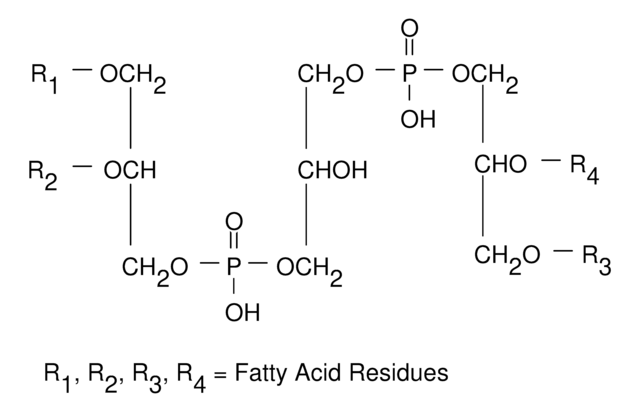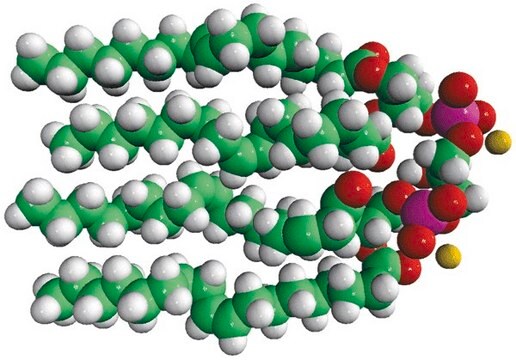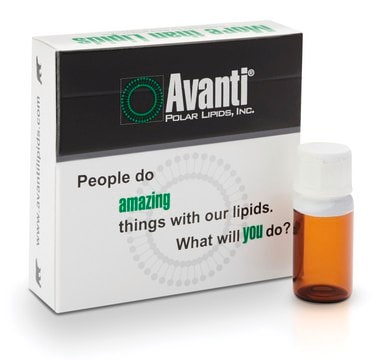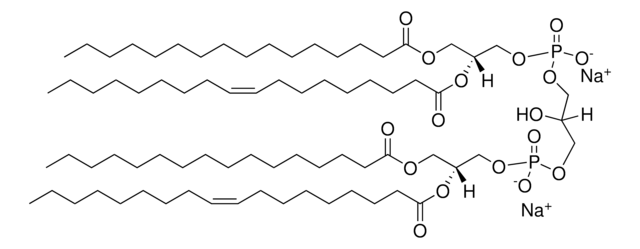710332P
Avanti
14:0 Cardiolipin (ammonium salt)
Avanti Research™ - A Croda Brand
Synonym(s):
1,1′,2,2′-tetramyristoyl cardiolipin (ammonium salt); 1,1′,2,2′-tetratetradecanoyl cardiolipin (ammonium salt); CL(1′-[14:0/14:0],3′-[14:0/14:0])
About This Item
Recommended Products
description
1′,3′-bis[1,2-dimyristoyl-sn-glycero-3-phospho]-glycerol (ammonium salt)
Assay
>99% (TLC)
form
powder
packaging
pkg of 1 × 200 mg (710332P-200mg)
pkg of 1 × 25 mg (710332P-25mg)
manufacturer/tradename
Avanti Research™ - A Croda Brand
lipid type
cardiolipins
phospholipids
shipped in
dry ice
storage temp.
−20°C
General description
Application
Biochem/physiol Actions
Packaging
Legal Information
Storage Class Code
11 - Combustible Solids
Choose from one of the most recent versions:
Certificates of Analysis (COA)
Sorry, we don't have COAs for this product available online at this time.
If you need assistance, please contact Customer Support.
Already Own This Product?
Find documentation for the products that you have recently purchased in the Document Library.
Customers Also Viewed
Our team of scientists has experience in all areas of research including Life Science, Material Science, Chemical Synthesis, Chromatography, Analytical and many others.
Contact Technical Service



![14:0 Cardiolipin (ammonium salt) 1′,3′-bis[1,2-dimyristoyl-sn-glycero-3-phospho]-glycerol (ammonium salt), chloroform](/deepweb/assets/sigmaaldrich/product/images/430/612/0f445fb1-937a-4275-bc4f-007d8a8a3328/640/0f445fb1-937a-4275-bc4f-007d8a8a3328.jpg)



![14:0 Cardiolipin (sodium salt) 1′,3′-bis[1,2-dimyristoyl-sn-glycero-3-phospho]-glycerol (sodium salt), powder](/deepweb/assets/sigmaaldrich/product/images/390/523/992bed4e-3608-4209-aa6e-fa9206a4a31b/640/992bed4e-3608-4209-aa6e-fa9206a4a31b.jpg)